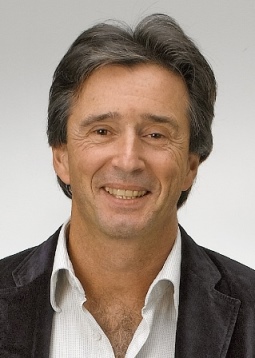 |
Karl Miller, Congress President of the 20th World Congress of the International Federation for the Surgery of Obesity and Metabolic Disorders (IFSO)
In your word of welcome you refer to our modern world epidemic that Obesity and Metabolic Disorders have come to represent. Please explain this observation in more detail.
The global nature of the obesity epidemic was formally recognized by a World Health Organization consultation in 1997. Obesity threat became the 21st century’s leading health problem. As more nations become industrialized and urbanized, the prevalence of obesity will inevitably rise. The cause of this increasing prevalence is that food is more available to everyone, and the physical activity is reduced with increasing urbanization. Recent breakthroughs leading toward understanding of the genetic basis of obesity have focused attention on the endogenous causes of weight gain.
Surprisingly, developing countries are not spared. Data from the WHO suggest that countries with a sedentary life style as well as those suffering from an evidently lower social status are showing a rapid flourish in the incidence of their morbidly obese citizens. This epidemic continuously pushes research institutes worldwide to find the optimal solution for this life-threatening state. However, surgery proved over the past decades to be the most effective solution, in terms of both weight loss and remission of obesity-associated debilitating diseases.
In three weeks the 20th World Congress of the International Federation for the Surgery of Obesity and Metabolic Disorders (IFSO) will start. What are the top three issues?
Highlight of the Congress will be the inter-disciplinary approach to the disease, that will be highlighted by anaesthesiologists, gastroenterologists, nutritionists and allied health professionals who will share their experience and study results with bariatric / metabolic surgeons. A major focus will be also on video sessions and live surgeries on complication and failure management. Plenary sessions on new developments in endoscopic/ endolumenal surgeries as well as standard metabolic procedures with a focus on adolescents and fast track treatment.
After Montreal in 2014 and Istanbul in 2013 Vienna was chosen as destination for IFOS 2015. Why?
We are celebrating our 20th Anniversary of a federation which is growing and 60 countries are part of IFSO at the moment. Austria was one of the five founding member countries and the history of bariatric / metabolic surgery goes back to the sixties. Vienna has established an outstanding reputation as conference city. International statistics confirm year after year that Vienna ranks among the top three congress destinations of the world, providing all the infrastructure and professionalism required to successfully organize the 20th World Congress of the International Federation for the Surgery of Obesity and Metabolic Disorders 2015.
We are living in a more and more digitised world. How important is your World Congress for the mission of IFSO?
Our existing data show that the yearly performance of bariatric / metabolic procedures has been exceeding 300,000 procedures, performed by more than 8,000 surgeons worldwide. Sharing experience, building networks and bringing interdisciplinary specialities together is one of the missions of IFSO world congress.
What are the two biggest challenges for your association these days?
Obesity being the pandemic that it is, there is a tendency for many healthcare professionals to start focusing on surgical treatments for it, yet it is extremely important for our society to ensure that the quality of treatment has the highest standards for the sake of the patient´s wellbeing and hence at IFSO we make it our priority to regulate the standards for bariatric surgery practice
Over the past few years industry has developed compliance regulations that positively supported educational activities while ensuring ethical interactions between industry and medical communities, all for the wellbeing of patients. However one of the challenges for many associations, not only for IFSO, is the existence of more and more strict health care compliance regulations. That makes it sometimes very challenging to organize scientific meetings.
The International Federation for the Surgery of Obesity and Metabolic Disorders (IFSO) is a federation composed of national associations of bariatric surgeons with currently 60 national societies. IFSO has been mainly a scientific organization, bringing together surgeons and allied health professionals, such as nurse practitioners, dieticians, nutritionists, psychologists, internists and anaesthesiologists, involved in the treatment of morbidly obese patients, but in the coming years, IFSO will maintain and extend its role in the challenge of bariatric surgery. IFSO is a professional organization, with the goal to support its members in aspects directly related to their profession. IFSO’s main goal is the optimisation of the treatment of severely obese patients. IFSO has produced a number of guidelines, such as selection criteria for patients or minimal requirements for bariatric surgeons. The 20th IFSO World Congress will take place from 26 to 29 August 2015 at Hofburg Vienna, Austria. www.ifso.com, www.ifso2015.com